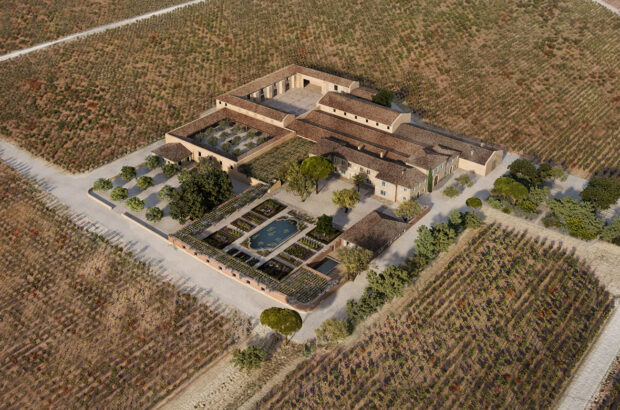Whisky legend the late Dr Jim Swan once described organic barley as an expensive waste of time. That was almost a decade ago and he was talking mainly about distillery economics. But did he have a point?
We know organic farming increases biodiversity and improves soil health. ‘If you’ve ever visited an organic farm and a non-organic farm, you can see the difference in those fields,’ says Liam Hirt, co-founder of the Circumstance Distillery in Bristol. ‘One is very much more alive.’
So it’s good for farmers. What about us drinkers?

CREDIT: Pascal Malamas / Alamy Stock Photo
What makes a whisky organic?
To make an organic whisky, distillers must follow organic principles all the way from raw material to finished product. At Circumstance the whiskies are organic but the rums and gins are not. Hirt says strong systems are vital to prevent cross-contamination. This means storing organic products separately, purging equipment between organic and non-organic batches and documenting absolutely everything.
Hirt uses yeasts more often found in Bavarian weissbiers, saisons and mead. Yeast falls under the organic rules too, meaning genetically modified organisms are strictly forbidden. ‘We needed to go to our suppliers and be certain that none of them were GMO and have them certified as such,’ he explains.
Certification and traceability?
A handful of certification bodies police organic distillers and their suppliers, including the Soil Association and Biodynamic Association. The main concern is traceability. Distillers must be able to show there’s no contamination of the organic chain.
Inspectors will spot-check records and balance amounts of organic malt purchased against alcohol sold. Any discrepancy could mean someone has snuck illicit sacks of non-organic malt through the distillery gates.
Whisky is an unusual product in the organic world, so finding a certifier who understands it is key. ‘It’s not like vegetables; get them in, package them, send them out,’ says Annabel Thomas, founder and CEO of Nc’nean Distillery in the western Highlands of Scotland. ‘We get barley and put it into a cask, then sell it three years, maybe five years later.’

Annabel Thomas of Nc’nean Distillery
What about organic casks?
Talking of casks, must they also be organic? Until recently, no-one could agree. ‘It’s not defined in the regulations because it’s quite niche,’ Thomas explains. Lately, a consensus has emerged that barrels are exempt.
Given their strong influence on the flavour of a whisky, this came as a relief. ‘If we had to source only new oak barrels, that would have had such an enormous impact on our spirit that it might have swayed me away from the whole endeavour,’ Thomas says.
What are the challenges?
Graham Manson, commercial sales manager of malting company Bairds Malt, says organic harvests are more at risk from bad weather, as farmers can’t rely on chemicals to ensure their crop ripens before a rainy autumn kicks in. ‘They either wait for it or they sacrifice a bit of quality and harvest it when the conditions are right,’ he notes.
The headaches don’t stop there. Organic barley yields up to 25% less grain per hectare, Manson estimates. It also costs more to grow. Farmers may save on chemicals but typically spend more on weed control. As a result organic malt can cost up to twice as much.
On top of that, organic malt makes less alcohol. This is because it typically has a higher nitrogen content, which means less carbohydrates and thus less alcohol. According to Manson, distillers should expect at most 400 litres from every tonne, compared to 410 litres for non-organic malt. At Nc’nean, which uses only organic Scottish barley, that figure has settled out at around 390 litres.

Organic barley yields up to 25% less grain per hectare than conventional barley CREDIT: Steve Cavalier / Alamy Stock Photo
Why go organic?
Thomas estimates the overheads of going organic add up to an extra 6% on the cost of a bottle. For a whisky sold at £55 that translates to £3.50.
‘I think we proved Jim Swan partially right and partially wrong,’ says Thomas. ‘He’s right that it’s expensive, but I don’t believe it’s a waste of time.’
Organic whisky doesn’t just benefit farmers and the environment, according to Thomas. She believes drinkers will find an upside too. ‘What you notice across many organic whiskies is that they have this lovely buttery texture,’ she says. ‘That comes from the organic barley.’
8 organic whiskies to try
Circumstance Single Grain Estate Whisky
Four grains, three yeasts and three types of cask; no wonder it’s so complex. Sips like warming silk. Each taste is a new dimension: date and plum, vanilla and clove, peach and orange, toffee and caramel biscuits, finishing on nutty oak and baking spice. Alcohol 45%
Deanston 2002 Organic American Oak 20 Year Old
Matured in re-charred American oak casks and bottled at cask strength. It opens with orange, pineapple and pear drop. The palate is rich and waxy, showing shortbread, sweet caramel popcorn and toasted coconut. Cinnamon and cloves linger on the finish. Alc 49.7%
Domaines des Hautes Glaces Indigène
A French single malt matured in a suitably Gallic combo of casks: wine, Cognac and Armagnac. It’s less vanilla, more nut and toasted cereal. Aromas of white peach and jasmine, with hints of soft, fresh baguette plus that buttery texture again. Alc 44%
Highland Harvest Organic Single Malt
An independent bottling from an undisclosed distillery. It starts out light, gentle and fresh, all popcorn and clean summer florals. Over time it reveals more depths of deliciousness: hay, flaky blonde pastry glazed with apricot jam, vanilla, raisins and cherries. Alc 46%
Koval Single Barrel Bourbon
Its mash bill marries the expected (51% corn) to the unexpected (49% millet). Its texture is smooth and a touch oily. A sweet, rich whack of vanilla weaves through jammy stone fruit, date and caramel, then a long spiced finish with a hint of tonka bean. Alc 47%
Nc’nean Organic Single Malt
Smooth, buttery texture, with complex layers of honeyed malt, vanilla and oak. The palate bursts with clove-studded peaches, cherries and ripe pineapple. Stem ginger mixes with peppery spice on the finish. Aged in bourbon, Sherry and STR (shaved, toasted and re-charred) red wine casks. Alc 46%
Thy Bøg Danish Single Malt
Matured in oloroso and PX casks. Beechwood-smoked malt brings an extra dimension of depth and warmth. Smooth as you like. Rich with dried fruit, candied citrus peel, banoffee, boozy sultanas and Maltesers. Confident. Delicious. One you’ll want to share. Alc 50%
Waterford Organic Gaia 2.1
Made from 2016’s barley. It’s like you’re nose down in the earth, sniffing the field itself. Grassy with an almost maritime freshness. Then come apples, bread crusts, porridge and hay building over soft, smooth buttery grain to grapefruit and cocoa on the finish. Alc 50%







